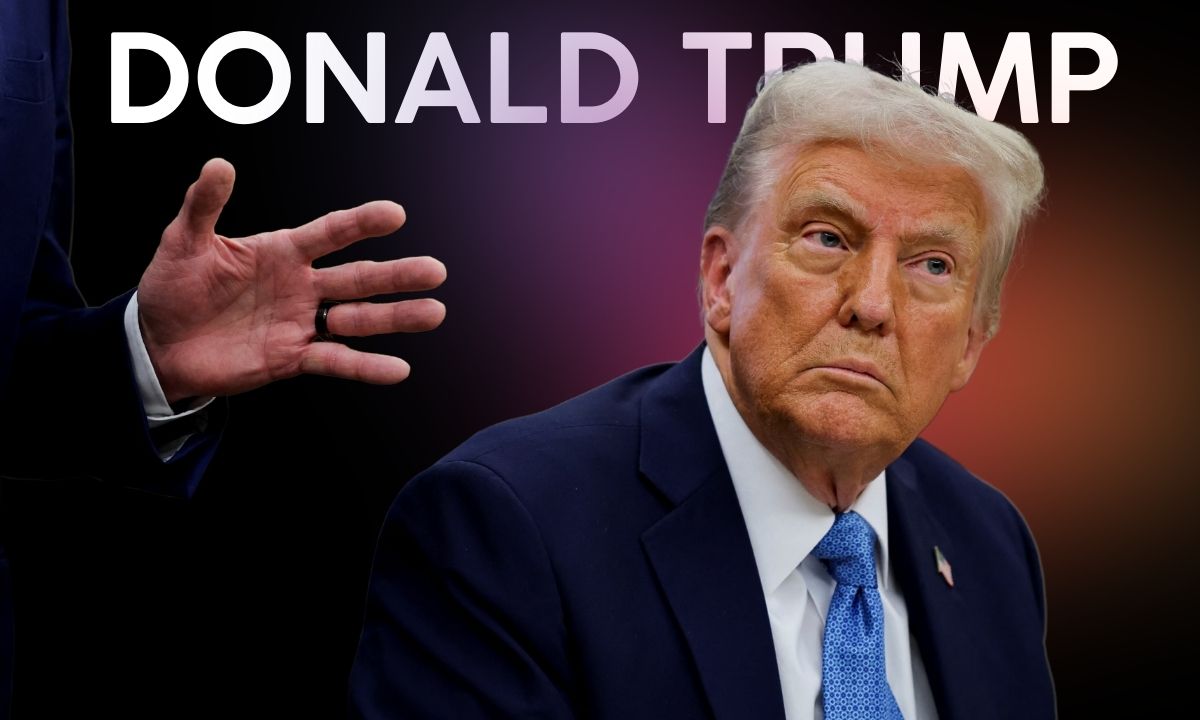Donald Trump has made headlines yet again by threatening new tariffs, this time targeting the European Union. While he hinted that tariffs on the UK might be avoidable, tensions remain high as Mexico, Canada, and China retaliate against the tariffs imposed by the US. Trump’s decision, which has sparked a global economic stir, reflects his ongoing dissatisfaction with international trade imbalances.
Trump’s Tariff Agenda Continues
During a press briefing, Trump reiterated his intention to impose tariffs on the European Union, stating confidently that “it will definitely happen.” He voiced concerns over the large trade deficit between the US and the EU and expressed his desire for Europe to increase imports of American cars and agricultural products.
Trump struck a softer tone regarding the UK, attributing it to his good relationship with Prime Minister Keir Starmer. “The UK is out of line, but I’m sure that one can be worked out,” he said, adding that Starmer had been “very nice” during their conversations.
Despite his conciliatory comments about Britain, Trump’s trade moves have sparked swift reactions from Canada, Mexico, and China.
Canada’s Firm Response
Canada has announced that it will impose a 25 percent retaliatory tariff on US products starting Tuesday, targeting $30 billion Canadian dollars’ worth of goods, including tobacco, household appliances, firearms, and military gear. In three weeks, Canada plans to broaden these tariffs to cover an additional $125 billion Canadian dollars’ worth of imports, including vehicles, steel, aluminum, and various agricultural products.
Prime Minister Justin Trudeau encouraged Canadians to “choose products made right here in Canada.” He urged consumers to check labels and support Canadian goods wherever possible. Trudeau, speaking firmly, said that while Canada did not seek escalation, the government would “stand up for Canada” and pursue all legal recourse available under trade agreements.
The move from Canada underscores the gravity of the situation, especially considering that Canada is the largest export market for 36 US states.
Mexico Strengthens Its Stand
Mexican President Claudia Sheinbaum echoed similar sentiments, emphasizing that sovereignty is non-negotiable. She criticized Trump’s decision to impose tariffs, stating that “problems are not addressed by imposing tariffs, but with talks and dialogue.”
In response, Sheinbaum announced that Mexico would introduce its own set of retaliatory tariffs. She assured the public that details of the government’s “plan B” would be revealed soon, reinforcing that Mexico does not desire confrontation but would protect its national interests.
Mexico and Canada have also pledged to enhance their bilateral relations in light of Trump’s actions. Both leaders discussed strategies for strengthening ties and collaborating on trade matters.
China Joins the Fight
China has condemned the tariffs as a “serious violation” of World Trade Organization rules. Beijing has vowed to file a lawsuit with the WTO and hinted at taking additional countermeasures to safeguard its rights and interests.
The Chinese Ministry of Commerce emphasized that tariffs are counterproductive and undermine normal economic and trade cooperation. While specifics of China’s countermeasures are yet to be revealed, it is clear that Beijing is prepared to defend its position vigorously.
The Economic Fallout
Trump acknowledged that the tariffs might cause “short-term pain” for Americans, though he insisted it was a necessary move to correct trade imbalances. Global markets reflected this uncertainty, with Asian share markets, cryptocurrencies, and US and European stock futures experiencing significant slumps.
Despite this economic turbulence, Trump maintained that the US has been “ripped off by virtually every country in the world” and that the tariffs would ultimately benefit America in the long term.
Legal and Social Reactions
In Canada, officials have described Trump’s tariffs as illegal and a violation of existing trade agreements. A senior government official noted that the move breached commitments under both the North American Free Trade Agreement and the WTO.
Canadians have expressed frustration and disappointment over the tariffs. Hockey fans booed the US national anthem during National Hockey League games, and the booing continued at an NBA game in Toronto where the Raptors faced the Los Angeles Clippers. One fan, Joseph Chua, remarked that he usually stood respectfully for both anthems but felt compelled to sit this time, symbolizing his discontent.
Social media has seen a surge of posts encouraging Canadians to buy local products instead of US goods. The sentiment is similar in Mexico, where citizens are bracing for potential job losses and economic challenges.
Alejandro Acosta, a truck driver from Mexicali, voiced concerns that US businesses operating in the region might relocate due to the tariffs. “If they raise taxes on the factories here, jobs may also decrease,” he said.
The Road Ahead
Trump’s hardline approach has left many questioning the future of international trade relations. As tensions escalate, global cooperation appears increasingly fragile. The US, Canada, Mexico, and China are all gearing up for prolonged negotiations, legal battles, and potential further economic fallout.
While Trump hinted at upcoming conversations with Trudeau and Sheinbaum, it remains uncertain whether these talks will yield meaningful resolutions. The situation underscores the challenges of navigating complex trade dynamics in a globalized world.
Conclusion
The unfolding trade conflict highlights the delicate balance between national interests and international cooperation. Trump’s tariffs have not only strained relations with key trading partners but have also ignited concerns about economic stability. As the world watches closely, one thing is clear — diplomacy and dialogue will be crucial in finding a path forward amidst the uncertainty.
